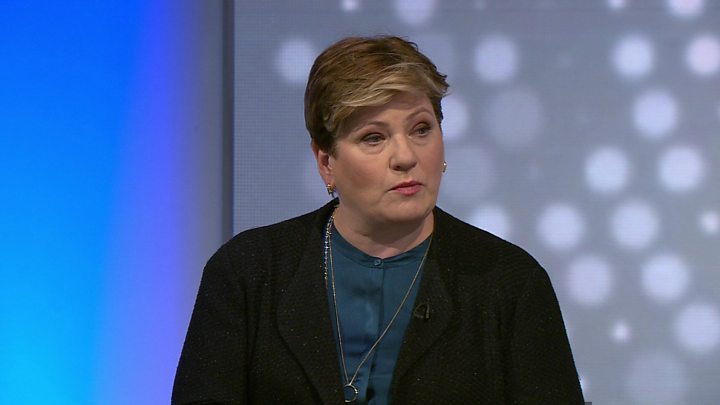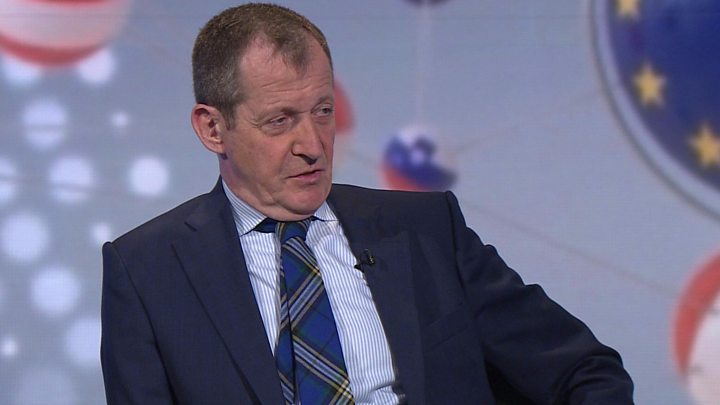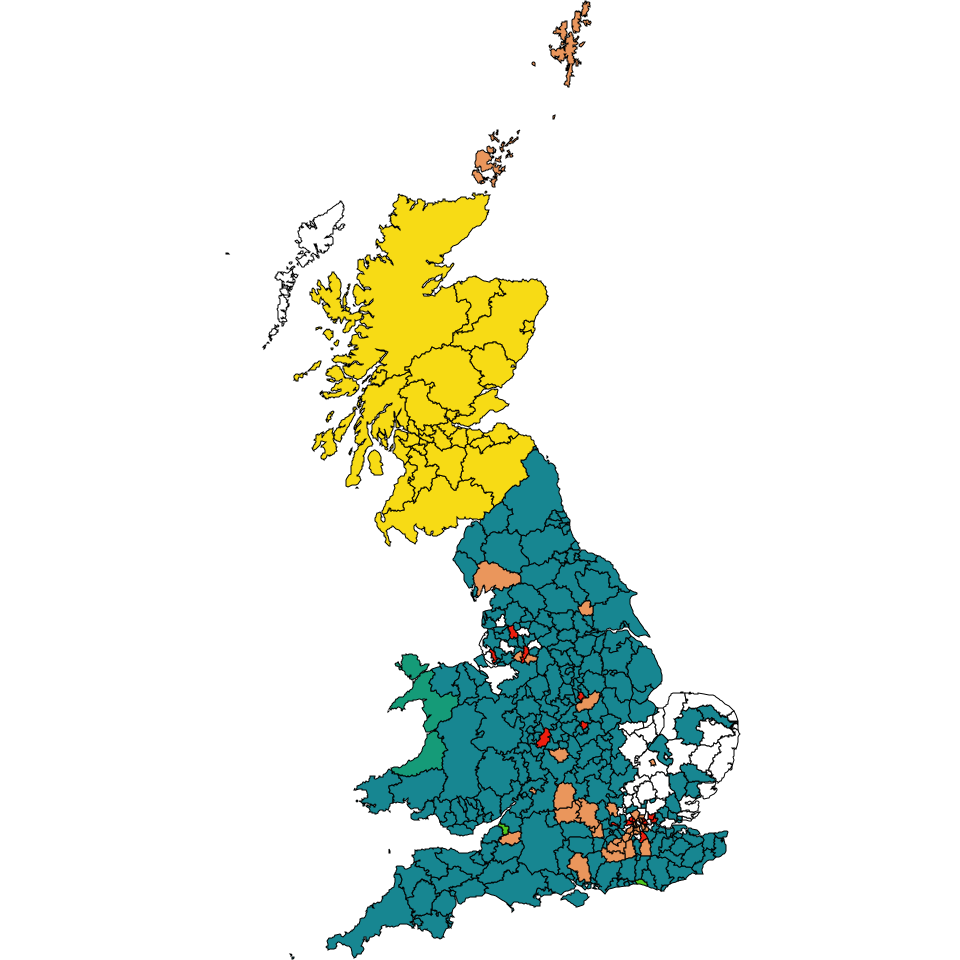UK European elections 2019: Brexit Party dominates as Tories and Labour suffer
Media playback is unsupported on your device
The Brexit Party has taken the lead in the UK European election results, with the pro-EU Lib Dems coming second.
The Conservatives and Labour have suffered heavy losses, with the former heading for less than 10% of the vote.
Brexit Party leader Nigel Farage said the two main parties “could learn a big message” from the results.
Overall, out of 64 MEPs declared, Mr Farage’s party has won 28, the Lib Dems 15, Labour 10, Greens seven, the Tories three and Plaid Cymru one.
Scotland is yet to declare, but the SNP is on course to increase its number of MEPs from two to three. The Brexit Party is predicted to win one.
Meanwhile, Northern Ireland’s count does not begin until Monday, with the results expected on Tuesday.
Polling expert Sir John Curtice said the results showed just how polarised the country has become – the combined tally for the two parties in favour of no deal – UKIP and The Brexit Party – amounts to 35%. The combined tally for parties who want another referendum parties is 40%.
So far:
- Ten out of 12 regions have declared
- The Brexit Party has received the highest share of the vote in nine of the 10 regions declared – it is heading for first place overall, with somewhere around a third of the vote
- The Conservative Party has been widely rejected by the electorate and is heading for fifth place
- The Lib Dems have taken second place with 20% of the vote – a vote that is clearly much higher in areas that backed Remain. In London, the Lib Dems came first and the Tories fifth
- The Green Party is also making gains, the party’s best performance since 1989
- Newly-formed Change UK has not won any seats yet, but leader Heidi Allen says they are “down, but we are not out”
- The Labour Party has fallen to third place and is on course to end up with less than 15% of the vote, an even worse performance than the previous low in 2009
All 28 EU member states are electing MEPs, and countries have been voting since Thursday.
The UK is electing 73 MEPs for its 12 regions under a system of proportional representation.
Conservative MP Helen Whately told the BBC: “We knew these were going to be bad elections.
“We wanted to have left Europe by now. It is frustrating for us and for people who usually vote Conservative.”
Brexiteer Tory Mark Francois said The Brexit Party had “romped it”.
Labour leader Jeremy Corbyn said the elections had “become a proxy second referendum” after the Conservative’s failue to deliver Brexit.
He said his party would “reflect on these results on both sides of the Brexit divide” and the issue “will have to go back to the people” through a general election or a public vote.
Labour’s deputy leader Tom Watson said the party needed to “urgently” re-think its Brexit position after the “disastrous” election results.

Media playback is unsupported on your device
Alastair Campbell, former spin doctor to Tony Blair and prominent member of the People’s Vote campaign for another referendum, said for the first time in his life he had voted for the Lib Dems.
Lib Dem Sir Ed Davey said: “If you add up all the votes of the Remain parties, there is a strong message.
“The Lib Dems are leading that Remain vote and have an awful lot to be pleased about.”
Change UK leader Heidi Allen told the BBC that her party, which has not won any seats so far, was “down, but we are not out”.
She said the results showed there had been a “massive swing to Remain”.

Media playback is unsupported on your device
The Brexit Party is running at an average of 44% of the vote in those council areas where more than 55% voted to Leave in 2016.
In areas where less than 45% voted Leave, the Lib Dems averaged 50% of the vote.
Figures suggest that the turnout in some areas rose sharply, while others saw a fall compared with the last election in 2014.
Wales saw the highest increase in turnout, with a five percentage point increase to 37.3%. The South East, South West and North East also saw a boost in the number of people casting their vote.
But in Northern Ireland turnout fell nearly six percentage points to 45.1%, while smaller drops were also recorded in the West Midlands, North West and Eastern regions.
Both of our big main parties are being punished severely for the meltdown in Westminster over Brexit.
The flip-side for the smaller parties? The Lib Dems are buoyant and of course, Nigel Farage is back with a vengeance.
A European election may not be a direct proxy for a UK general election, but nevertheless, after tonight, millions of voters in regions up and down the country will be represented by parties other than the big two.
It also casts doubt on the idea that compromise can win out. Instead, the clear message seems to be that people want clarity – whether that be Leave or Remain – when it comes to Brexit.
Leavers want to Leave, Remainers want to Remain, and efforts to persuade people they should back something in the middle have failed.








